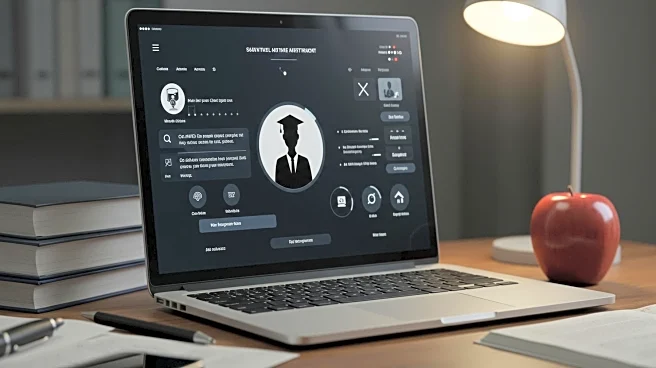What's Happening?
Artificial intelligence is increasingly being integrated into academic settings, offering students new ways to communicate with professors. AI tools like ChatGPT and Claude AI provide students with guidance on crafting empathetic and effective emails to professors, particularly when addressing sensitive topics such as grades and deadlines. These tools can simulate the perspective of a professor, helping students to approach their communications with understanding and tact. The use of AI in this context aims to prevent awkward interactions and promote honest and respectful dialogue between students and educators.
Why It's Important?
The integration of AI in academic communication is significant as it addresses the growing need for effective online communication skills among students. By using AI tools, students can enhance their ability to express themselves clearly and empathetically, which is crucial in maintaining positive relationships with educators. This development also highlights the broader trend of AI adoption in various sectors, including education, where it can serve as a valuable resource for improving interpersonal skills. However, it raises questions about the potential over-reliance on technology for personal interactions and the importance of balancing AI assistance with human judgment.
What's Next?
As AI tools become more prevalent in educational settings, institutions may consider formalizing their use in student communications. This could involve training sessions on how to effectively use AI for academic purposes, ensuring students understand both the benefits and limitations of these technologies. Additionally, educators might explore ways to integrate AI feedback into their teaching methods, potentially using AI-generated insights to tailor their approach to student needs. The ongoing evolution of AI in education will likely prompt discussions on ethical considerations and the role of technology in shaping student-teacher interactions.
Beyond the Headlines
The use of AI in student communications could lead to broader cultural shifts in how students perceive and engage with authority figures. As AI tools encourage empathy and understanding, they may contribute to a more collaborative and respectful academic environment. However, there is also the risk of diminishing the value of direct human interaction, as students may become accustomed to relying on AI for guidance. This underscores the need for educational institutions to strike a balance between leveraging technology and fostering genuine interpersonal skills.









